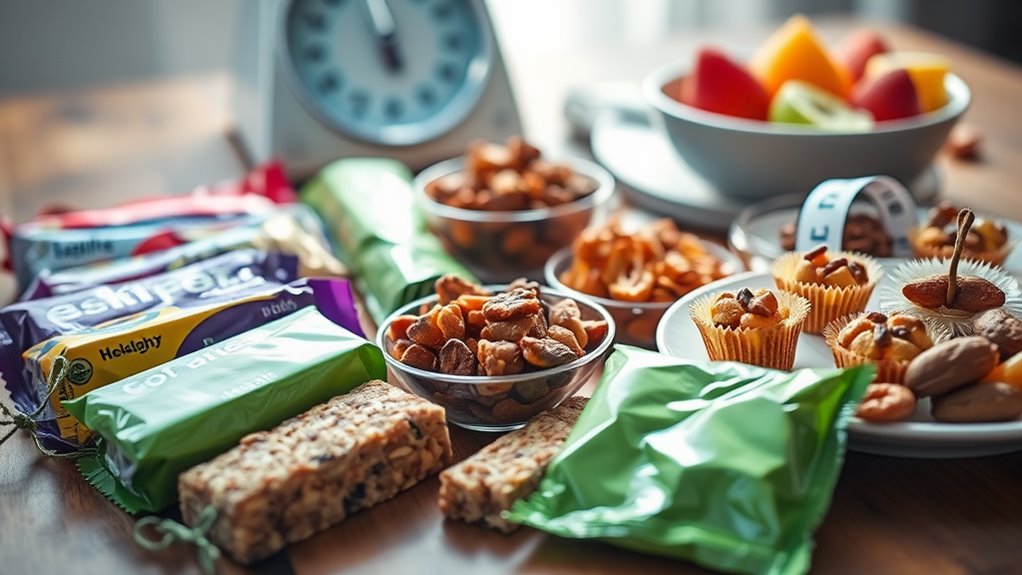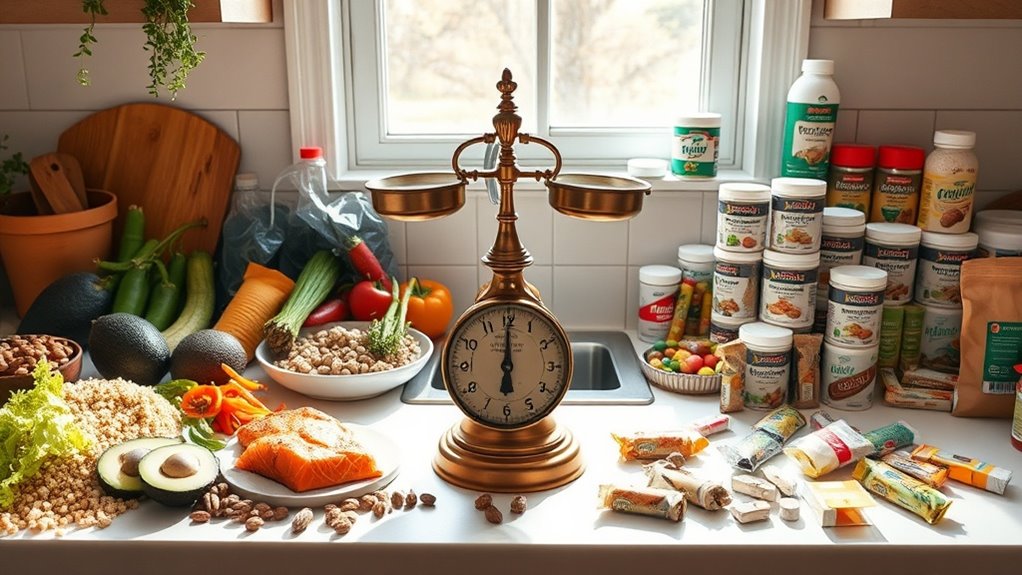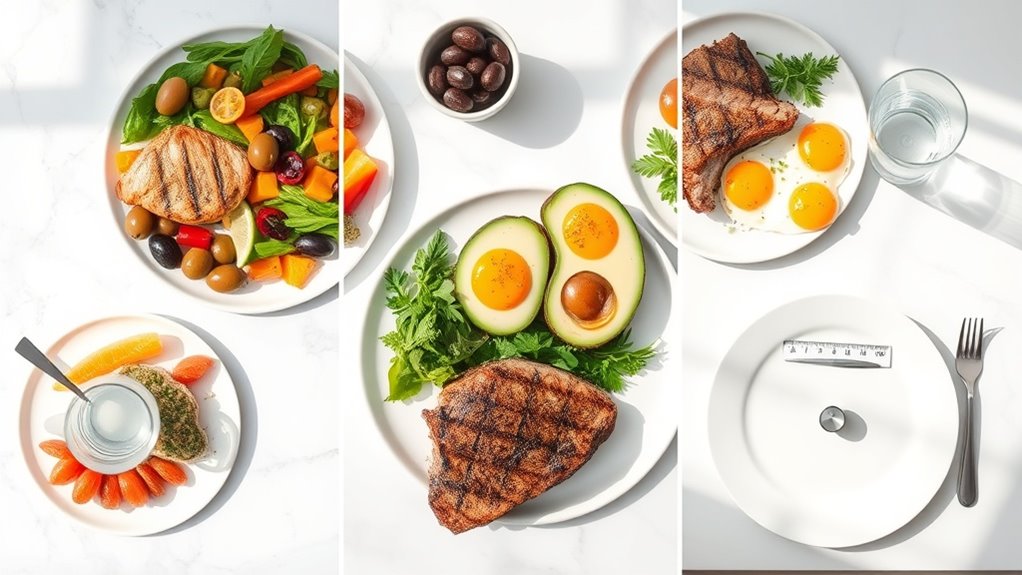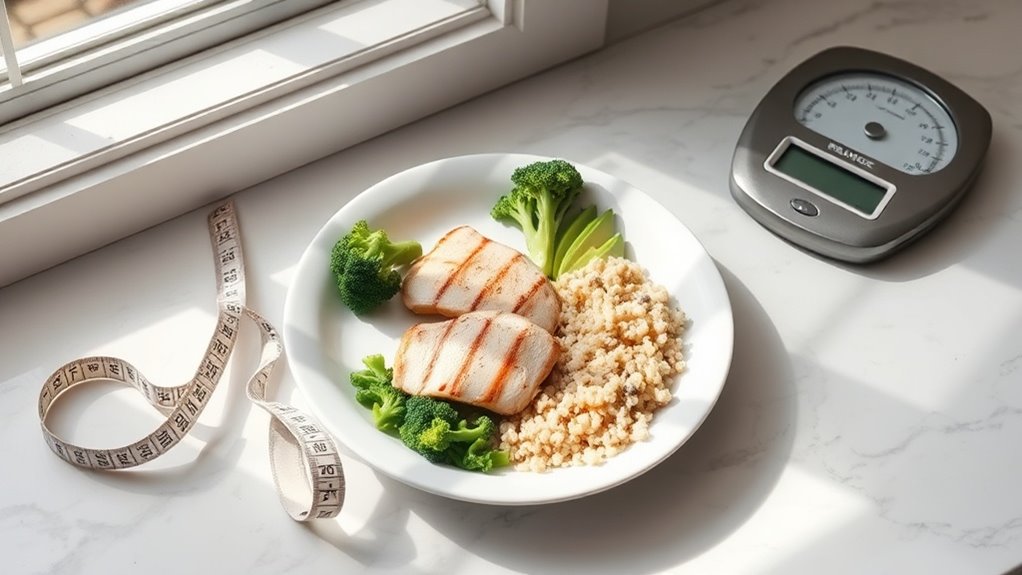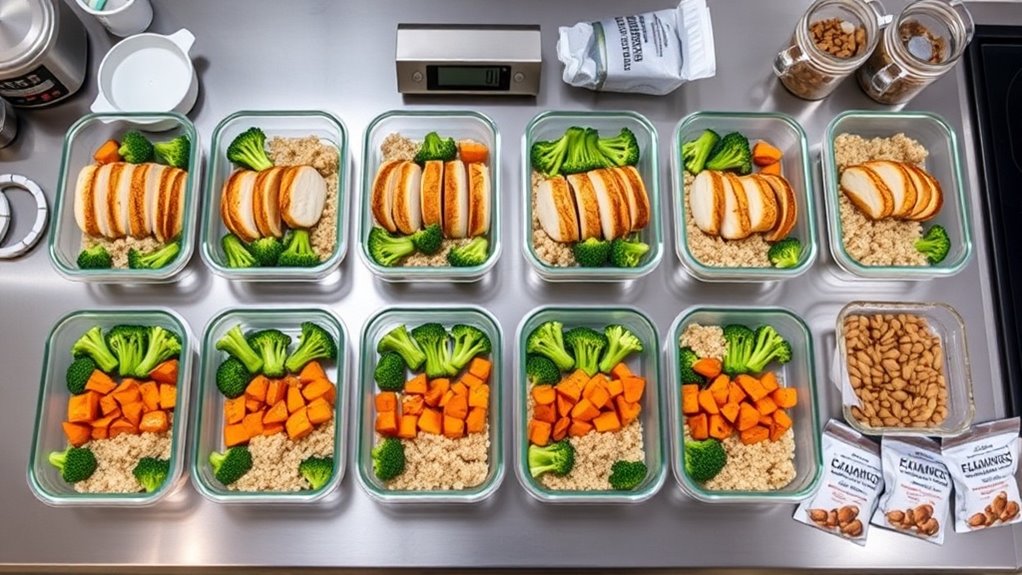The Truth About ‘Healthy’ Snacks That Are Secretly Making You Fat!
You might think you’re making smart choices by reaching for granola bars or dried fruits, but these snacks can be more harmful than helpful. Many products labeled as “healthy” often pack in hidden sugars and fats that can derail your weight loss goals. If you’re curious about what’s really lurking in your snack stash, you’ll want to uncover the truth behind these seemingly innocent options.
The Deceptive Allure of Granola Bars
Although granola bars often tout health benefits, they can be surprisingly deceptive. You might think you’re making a smart choice, but many bars are among the worst weight loss snacks out there. Loaded with sugars and unhealthy fats, they can easily sabotage your efforts.
When you read “whole grains” or “natural,” it’s easy to feel good about your snack, but that can be misleading. Instead of nourishing your body, those seemingly wholesome ingredients might lead to energy crashes and cravings for more sweets.
It’s important to read the labels and look out for hidden sugars that can turn your healthy snack into a calorie bomb. Remember, you’re not alone in this struggle; many are seeking that sense of belonging while trying to make healthier choices. In fact, many granola bars contain hidden sugars that can turn your snack into a calorie bomb.
The Hidden Dangers of Dried Fruits
While dried fruits may seem like a healthy choice, they often harbor hidden dangers that can derail your diet. Many brands add sugar to enhance sweetness, leading you to consume more calories than you realize. Plus, the drying process concentrates the sugars, making a small serving pack a hefty caloric punch. Checking nutrition labels is essential to identify added sugars, especially in dried fruits.
| Dried Fruit | Calories per 100g |
|---|---|
| Raisins | 299 |
| Dried Apricots | 241 |
| Dried Cranberries | 325 |
You might feel like you’re making a smart snack choice, but those calories can add up quickly. When you’re trying to fit in with friends who share health goals, it’s easy to overlook these details. Remember, being part of a healthy community means making informed choices. Choose fresh fruits for a lighter, more satisfying option that truly supports your wellness journey.
Low-Fat Does Not Mean Low-Calorie
When you reach for that low-fat snack, it’s easy to assume you’re making a healthier choice, but don’t be fooled—low-fat doesn’t always mean low-calorie. Many low-fat products compensate for the lack of fat with added sugars and fillers to enhance flavor, which can drive the calorie count up. You might think you’re indulging in a guilt-free treat, but those extra calories can add up quickly. In fact, consuming these products can lead to increased cravings for sugar and processed foods, making it harder to maintain a balanced diet.
It’s important to read labels and pay attention to serving sizes. Just because it says “low-fat” doesn’t mean you can munch mindlessly.
Instead, opt for whole foods like fruits, veggies, or nuts that offer real nutritional benefits without the misleading marketing. By choosing snacks that are genuinely good for you, you’re not just fitting in; you’re making a choice that aligns with your wellness goals.
The Truth Behind Protein Snacks
You might think those protein bars or shakes are your ticket to fitness, but many are loaded with sugars and unhealthy additives. They can pack more calories than a candy bar, sabotaging your weight loss goals without you even realizing it. It’s easy to be swayed by clever marketing that portrays these snacks as virtuous, but you deserve better choices. Instead of relying on pre-packaged options, consider whole food sources like nuts or Greek yogurt. They provide protein without the hidden pitfalls. Additionally, many healthy snacks can still be high in calories and sugar, making it essential to evaluate their nutritional value.
Misleading Portion Sizes in Healthy Alternatives
Even if you think you’re making healthy choices, misleading portion sizes in snacks can lead you to consume more calories than intended.
Many companies use smaller serving sizes on labels to make their products seem healthier. You might feel good about snacking, but those tiny portions can trick you into eating multiples—adding up quickly!
Here are four common snacks that often have misleading portion sizes:
-
Granola Bars: Often marketed as healthy, but one bar might be just a small part of what you’d actually eat.
-
Nut Butters: A tablespoon can seem tiny, but you might spread much more on your toast.
-
Dried Fruit: It’s easy to underestimate calories in a handful, but they can be packed with sugar.
-
Vegetable Chips: They may sound healthy, but the serving size is often much smaller than you’d expect.
To support your weight loss journey, consider making small dietary tweaks that can lead to significant results without exercise. Stay mindful and check those serving sizes!

